In the current world which is very dynamic, IT professionals are continuously finding means of enhancing efficiency, minimizing mistake and streamlining their activities at work.
Being a developer, a network administrator or simply a cybersecurity specialist, the tools will help you contribute to the productivity greatly.
The use of AI-powered productivity tools is transforming how IT workers do their jobs, they are providing new solutions to old problems, and allowing teams and individuals to accomplish more in shorter periods of time.
What Are AI Productivity Tools?
Productivity AI tools are based on artificial intelligence to automate workflows, improve decisions and their accuracy as well as make writing and working more productive.
They employ the use of machine learning algorithm, natural language processing (NLP), and data analytics to offer smarter means of performing their tasks, data analysis, threat detection, and automation of monotonous routines.
Whether it is automation of code suggestion to developers or better security surveillance, AI tools fit needs of many areas of the IT market, simplifying daily operations and running them more efficiently.
Top AI-Powered Productivity Tools for IT Professionals
The AI tools that are currently in the market are more than enough to satisfy various needs in the IT profession. Next, we listed several of the best AI tools, their primary features, and how all this can be used by IT professionals below.
AI-Powered Task Management Tools
The critical part of any IT project is task management, be it management of team activities or the personal tasks. With AI-powered task management tools, tasks can be automatically distributed, productivity feedback can be provided, and even members can be tasked on what needs to be done depending on urgency and criticality.
Trello + Butler
Trello along with the Butler feature provides the automation of tasks to manage projects. The Butler AI has the ability to automate any actions depending on the rules set by the user, ex: it can move cards between lists, send reminders, or assign them to particular team members depending on certain keywords. This is time saving and there is consistency in handling the tasks.
Monday.com
Monday.com can be characterized by such AI-based functions as workload and task prioritization. It proposes project schedules and identifies risk tasks in the project. In the case of the IT professionals, the Monday.com facilitates cross-integrations with other tools such as GitHub and Slack to ensure that a smooth workflow occurs.
ClickUp
| Feature | Trello + Butler | Monday.com | ClickUp |
|---|---|---|---|
| Automation | Yes | Yes | Yes |
| Integration | Slack, Google Drive | Gmail, Microsoft Teams | Zoom, GitHub |
| Ease of Use | Beginner-friendly | Easy to use | Advanced capabilities |
AI-Powered Development Tools
To the software developers, AI-driven development tools can be very helpful since they help in code writing, debugging, and enhancing efficiency. The tools are aimed at saving time by automatically code, real-time suggestions, and minimizing manual efforts.
GitHub Copilot
GitHub Copilot (Code assistant) is an artificial intelligence developed even by GitHub in collaboration with OpenAI. It gives code suggestion in real time, autocompletes functions an also assists the developer in writing his code faster, through predicting what he or she might want to do next. This tool allows various languages including python, JavaScript and Ruby.
IntelliCode by Visual Studio
IntelliCode an AI Code completion technology which offers a contextual code completion experience that considers your code writing behavior and preferences. It analyses your code and recommends any syntax, variable name and function structure improvements. The next thing is that it is implemented in one of the most popular development IDE, Visual Studio.
Tabnine
| Tool | Supported Languages | AI Features | Integration |
|---|---|---|---|
| GitHub Copilot | Python, JavaScript, Ruby | Contextual suggestions | VS Code, JetBrains |
| IntelliCode | C#, Python, TypeScript | Code completion | Visual Studio |
| Tabnine | JavaScript, Python, Java | Smart autocompletion | VS Code, Sublime Text |
AI-Powered Cybersecurity Tools
The use of AI in cybersecurity The use of AI is increasing in the cybersecurity profession and is being seen as a potential tool to help address many of the challenging issues facing the cybersecurity field. AI-powered cybersecurity tools AI-powered cybersecurity tools are software programs within the cybersecurity field that use intelligent algorithms to detect threats and deploy features that prevent cybersecurity risks. AI-powered cybersecurity tools are tools that will deal with many of the problematic issues that are facing the cybersecurity field.
Darktrace
Darktrace applies AI technology to identify suspicious activity in real time based on previously learned patterns of normal network behaviour, and raise alerts. It is particularly successful in finding zero-day attacks, ransomware, and insider attacks, the reasons why it is a helpful resource with the IT professionals involved in the management of network safety.
Crowdstrike
The AI provided by Crowdstrike in cybersecurity contains endpoint detection and response (EDR). It uses machine learning to identify and respond to any potential security activity hence giving real time cover to the threats like malwares and phishing attacks.
Cortex XSOAR
Cortex XSOAR (Security Orchestration, Automation and Response) is based on AI to control security activities and enhance time response. It has the capacity of incident management, threat intelligence, and compliance monitoring, which frees IT professionals to address other issues that are of greater priority.
Benefits of AI Productivity Tools in IT
Implementation of AI tools to enhance productivity has a number of benefits to the IT professionals and to the organization. Some of the most important advantages are as follows:
Enhanced Efficiency
Routine tasks can be automatized with the help of AI tools so that fewer people can be occupied with manual work. This enables the IT professionals to concentrate in more value added and complex functions and eventually more productivity would be realized.
Improved Decision-Making
With the use of AI tools, IT professionals can get actionable insights and make informed decisions because of data-driven suggestions. Through the examination of huge amounts of data, AI can find patterns and trends that would otherwise be challenging to detect.
Cost Savings
Artificial intelligence tools enable businesses to cut down on the expenses incurred during operations by automating them and making them more effective. AI can be used to accomplish the tasks which would have needed more hands which means saving the money in the long term.
Increased Collaboration
How to Choose the Right AI Productivity Tool for IT
The choice of the AI productivity tool depends on the needs of your IT team or the organization in general. These are some of the factors that should be addressed when assessing tools:
Type of IT Work
-
If you are a developer, you might need tools that focus on code generation and debugging (e.g., GitHub Copilot or IntelliCode).
-
If you’re managing IT infrastructure, consider tools that automate network monitoring or security (e.g., Darktrace or Crowdstrike).
Integration Capabilities
Make sure that whatever AI tools you select are easy integrations with your existing tools and workflows. As an example, when you are already using Slack as a communication solution, you should select a task management tool that has the capability to integrate with Slack to make your workflow appear simple.
Customization and Scalability
Search the tools that are able to be adapted to the needs of your team. The AI tools ought to scale with the growth of your team, which means enabling it to toil larger amounts of work or progressively complex errands.
Future Trends in AI-Powered Productivity Tools for IT
Increased Automation of IT Processes
As AI tools are improving, the range of activities that can be automated will be widening. Automation will not only remain in the tedious routine task but will also refer to more advanced procedures. By way of example, in an IT operation processes, entire processes including network monitoring, server management will be automated and people will not have to respond to everything all the time.
AI tools will not just create a code in development, they will also begin proposing comprehensive solutions to complicated issues. Such solutions can be someone it recommends how to structure the system architecture, how to deploy it and even the features that an end user will find the most usable to their business.
Predictive Analytics and Proactive Decision-Making
This property of AI related to the analysis of large volumes of data in real-time will allow IT specialists to make preliminary data-driven decisions. It will have predictive analytics that will be more accurate and will use it in a broader sense within IT departments. Manual inspection of systems, fixing security holes, or resolving performance bottlenecks can take months before they cause problems, but AI can help IT teams detect problems before they happen so they can address them early.
Take the example of AI suggesting the potential of a server crash based on the history of performance data so that the IT team can already take preventive measures. On the same note, AI might even be able to calculate what features, or sections of code, in software development would break first and prompt the developer to implement a solution before it becomes a problem in production.
Natural Language Processing (NLP) Integration
As the AI further develops, more and more tools that use natural language processing (NLP) will occur. AI tools with NLP will enable IT professionals to communicate with their systems with spoken words and will result in fewer technical skills needed to complete complex tasks.
Just think of how powerful an IT professional would be, how much time they will save by simply just asking a question, like, What are the most dangerous threats to my network today? and getting a detailed actionable report. Such interaction will be even more widespread as more AI systems will enhance their language comprehension and generation capacity.
How AI Tools Will Improve Collaboration and Communication
Collaboration and communication is also among the main fields in which AI is likely to bring drastic changes in. Automation of email software, scheduling meetings, and team workflow are already being performed with the help of AI tools. Artificial intelligence will even in the future enable even smoother communication in distributed teams.
As an example of that, AI tools can be used to give language translation in real-time to international teams, so IT professionals that represent other regions of the world can work together with greater frequency. Project management systems delivered by AI would be able to de-skill tasks that need to be assigned to any team member without human involvement, allocation would optimize resources and reduce bottlenecks.
Moreover, AI will also be able to detect the areas of collaboration in organizations by studying the patterns of communication. Suppose two teams are working on comparable projects and an AI tool notices this, then the AI tool may give proposals on how they can collaborate as a result of which the productivity will be enhanced.
The Role of AI in IT Security and Risk Management
AI will remain a significant aspect of enhancing IT security and risk management. Currently, AI-powered tools find application in the detection of anomalies and threats, but in the future, they will allow mitigating security breaches even before they occur.
As another example, using AI tools will allow analyzing patterns in large sets of data (including network traffic traces, user activity traces and traces of the applications running on user device) and identifying real-time threats. Such tools will also have an ability to react automatically to security incidents, preventing malicious traffic or isolating infected systems, thus no human assistance is required.
Ethical Considerations in the Use of AI Tools
On the one hand, AI tools have potentially invaluable opportunities; but on the other hand, these tools introduce some serious ethical questions. The IT professionals will have to consider the ethical consequences of AI application in their day-to-day activities with great care. Among the central issues, there are:
Bias in AI Algorithms: AI tools learn from data, and if the data they are trained on is biased, the AI’s decisions can be biased as well. This is especially concerning in fields like cybersecurity, where AI-driven systems may inadvertently ignore or fail to identify certain types of threats.
Job Displacement: As AI automates more tasks, there is concern that it could displace jobs in IT and other fields. While AI can increase efficiency, it’s essential to strike a balance between automation and maintaining valuable human roles.
Data Privacy: AI tools that analyze sensitive data, such as user behavior or network traffic, need to comply with data privacy regulations. IT professionals will need to ensure that AI tools are used responsibly and do not compromise user privacy or organizational security.
Summary
The use of AI-driven productivity tools is already having a huge impact on the IT scene and can only get even bigger. AI is changing how IT professionals do their job and interact with each other, whether as an automation tool that eliminates menial work or as a tool that allows them to anticipate future developments. The prospects of the future even point to a greater array of AI functionalities including but not limited to predictive, or natural language processing, which is why AI has become indispensable to the IT professional.


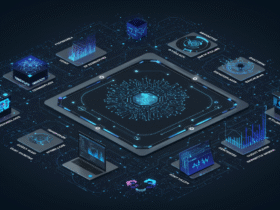
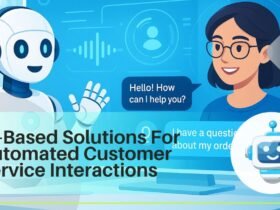
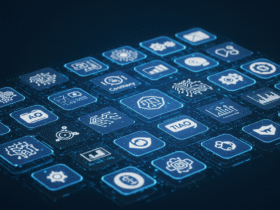




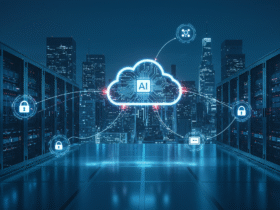

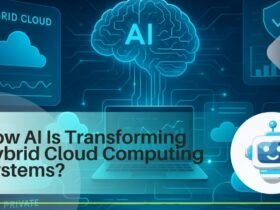
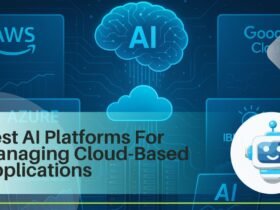
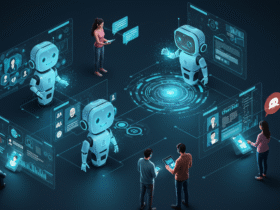
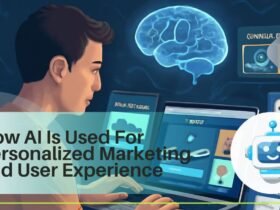
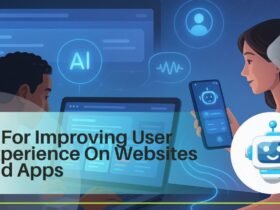
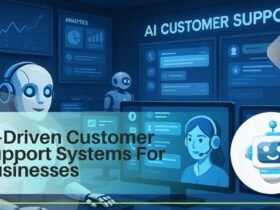
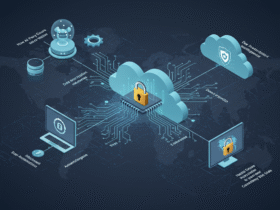
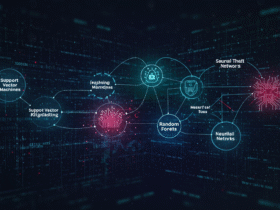



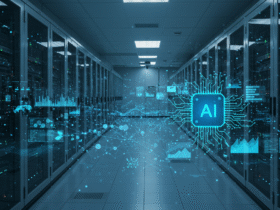
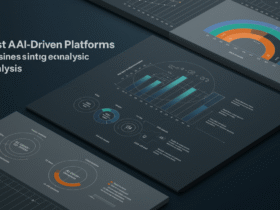





Leave a Reply